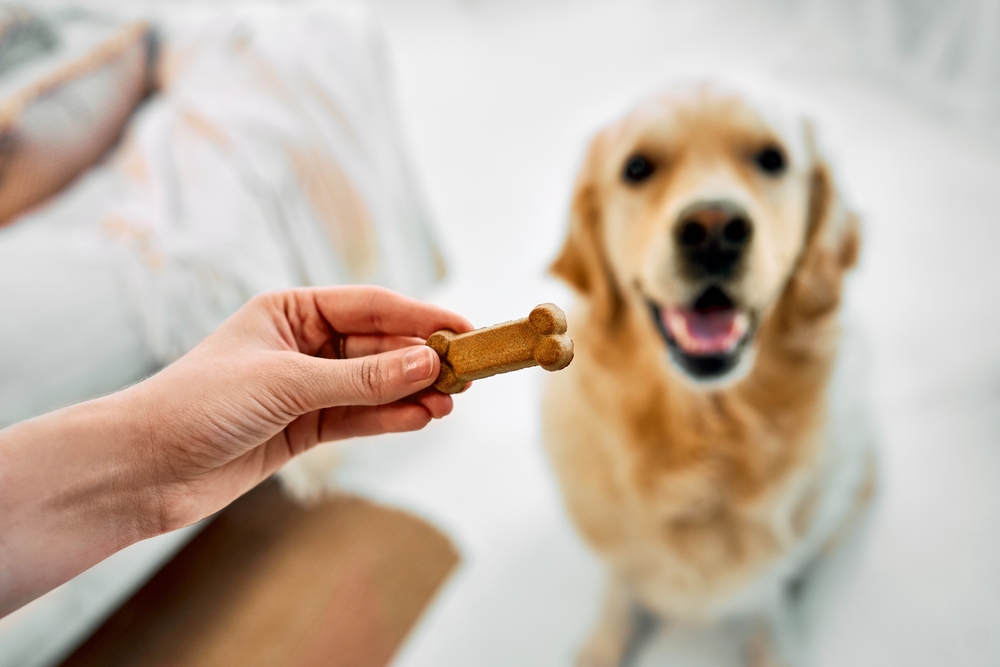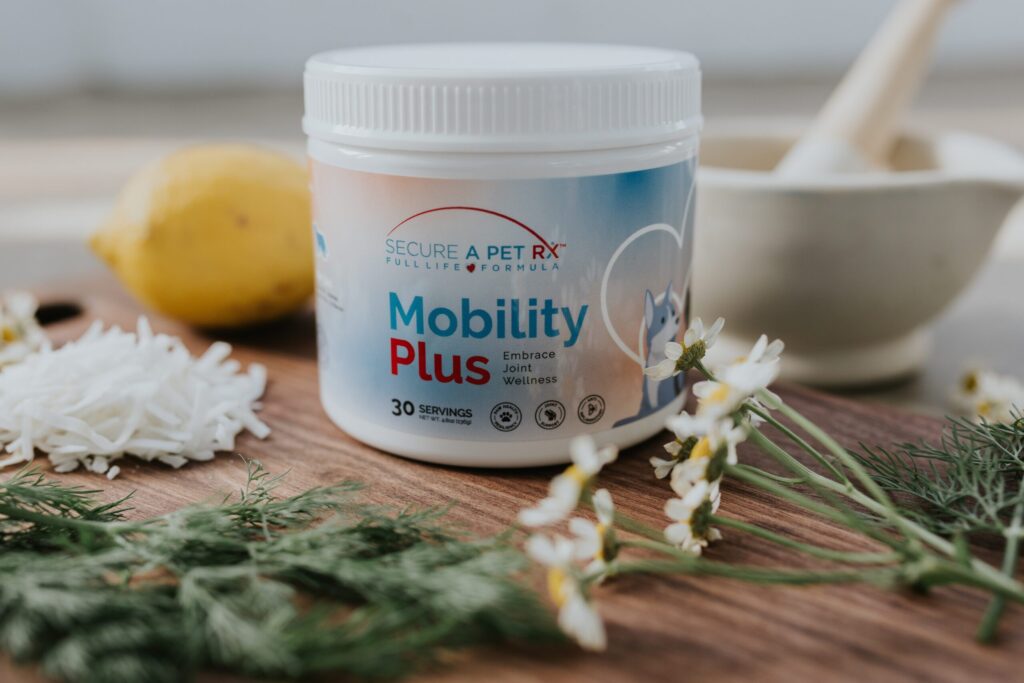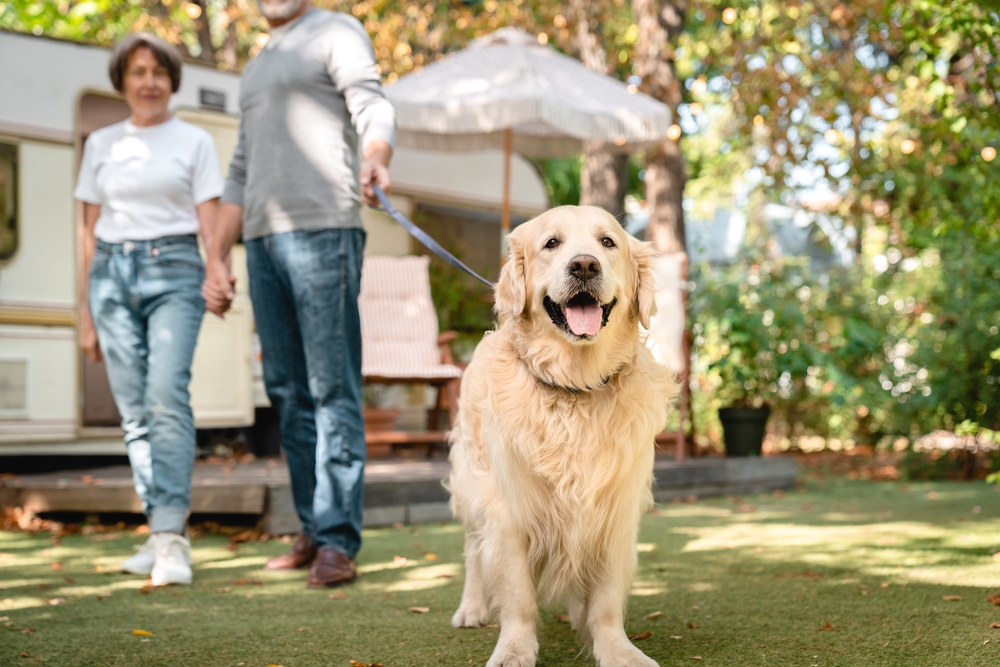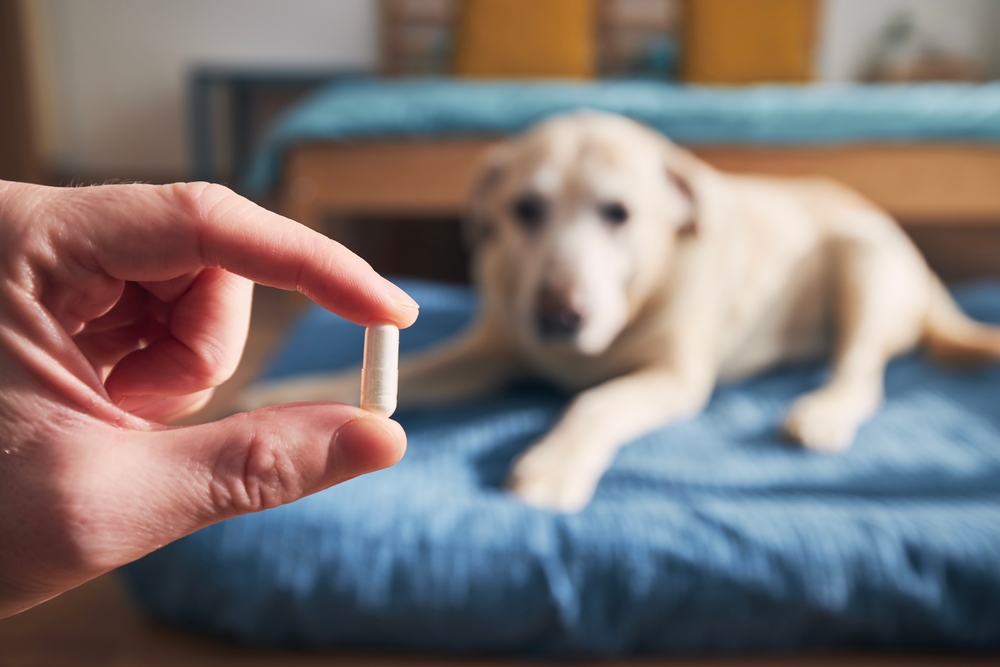Watching your dog age is a journey full of love, memories, and sometimes a bit of worry. Those once boundless bursts of energy may slow down, and you may notice your dog resting more often or hesitating to climb stairs. As pet parents, it is natural to feel concerned when our loyal companions begin to slow down. Understanding why this happens and how to support your furry friend can make a huge difference in their quality of life.
One of the most important aspects of senior dog care is Dog Mobility. Maintaining strong joints, muscles, and overall energy helps your dog stay active, happy, and engaged with family activities. The good news is that with a thoughtful routine, proper nutrition, gentle exercise, and natural supplements, you can help your senior dog enjoy their golden years to the fullest.
Understanding Why Senior Dogs Slow Down
A slowdown in senior dogs is normal, but it can have several causes. Aging brings natural changes to bones, joints, muscles, and even organs. As dogs get older, cartilage in joints can wear down, muscle mass can decrease, and energy metabolism may slow. These physical changes directly impact Dog Mobility, making movement more challenging.
Other factors include:
- Chronic pain or arthritis which may make simple movements like jumping or walking uncomfortable
- Weight gain which puts extra strain on aging joints
- Reduced stamina due to changes in cardiovascular health
- Cognitive changes which can affect confidence and willingness to move
While some slowing down is expected, it is important to notice signs that may indicate more serious health concerns.
Signs That Your Senior Dog May Need Support
It is natural to wonder if your dog is simply slowing with age or if there is an underlying issue affecting Dog Mobility. Some signs to watch for include:
- Hesitation to climb stairs or jump onto furniture
- Limping or stiffness after rest
- Less interest in walks or playtime
- Difficulty standing up or lying down
- Muscle loss or changes in body shape
If you notice these signs, it is important to address them early. Timely care can significantly improve your dog’s comfort, activity level, and happiness.
Nutrition and Diet for Active Senior Dogs

Good nutrition is a cornerstone of healthy aging. The right food supports joint health, energy levels, and digestive function. Senior dogs often require diets lower in calories but rich in nutrients that support Dog Mobility and overall wellness.
High-quality proteins help maintain muscle mass, while omega fatty acids support joint health and reduce inflammation. Natural fibers and probiotics help with digestion, which is especially important as digestive efficiency may decline with age. Including foods designed for seniors or supplements for gut health ensures your dog absorbs nutrients effectively.
If you are looking for options that support both joint and digestive health, explore dog digestive support food. A carefully balanced diet combined with natural supplements can help your senior dog maintain strength and mobility.
Exercise and Gentle Activity for Senior Dogs
Exercise may seem counterintuitive when your dog slows down, but gentle activity is critical for preserving Dog Mobility. Regular movement helps maintain muscle tone, flexibility, and cardiovascular health.
Tips for senior dog exercise include:
- Short, frequent walks instead of long sessions
- Low-impact activities like swimming or walking on soft surfaces
- Gentle play sessions with soft toys
- Controlled stretching exercises guided by a vet
Consistency is more important than intensity. The goal is to keep your dog active without causing strain or discomfort. Exercise also stimulates mental health, keeping your dog alert, happy, and emotionally engaged.
Natural Supplements to Support Dog Mobility
As dogs age, natural supplements can be a valuable addition to their routine. Supplements with glucosamine, chondroitin, omega fatty acids, and herbal blends can strengthen joints, reduce inflammation, and support Dog Mobility.
Choosing the best dog mobility supplements ensures your dog receives high-quality ingredients without unnecessary additives. Regular supplementation can improve flexibility, comfort, and energy, making daily activities more enjoyable

At Secure A Pet RX, we provide natural supplements designed to help senior dogs maintain mobility, digestive health, and overall wellness. These supplements are crafted to support your furry friend’s body naturally, helping them stay active and happy.
Veterinary Care and Professional Guidance
Regular veterinary checkups are essential for senior dogs. Your vet can evaluate joint health, identify early signs of arthritis, and recommend tailored exercise or diet adjustments. They can also advise if dogs have physiotherapy, which is often highly effective for improving strength and mobility in older dogs.
Physical therapy or gentle rehabilitation can help:
- Restore muscle strength
- Improve flexibility
- Reduce pain and stiffness
- Enhance confidence in movement
Working with a professional ensures your dog receives the safest and most effective care for long-term mobility.
Weight Management for Aging Dogs
Maintaining a healthy weight is critical for Dog Mobility. Extra pounds put strain on joints, contribute to fatigue, and exacerbate arthritis. Balanced feeding, portion control, and regular exercise help prevent weight gain.
Avoid overfeeding treats, and choose nutrient-rich options that support joint and digestive health. A combination of diet, activity, and supplements ensures your senior dog maintains an optimal weight and continues to move comfortably.
Creating a Comfortable Home Environment
Small changes in the home can make a big difference in your senior dog’s life. Consider:
- Non-slip rugs or mats to prevent slipping
- Ramps for furniture or vehicles
- Soft bedding that supports aging joints
- Accessible water and food bowls at a comfortable height
These adjustments reduce strain on your dog and encourage them to remain active and confident.
Mental Stimulation and Emotional Wellbeing
Aging can affect not only the body but also the mind. Mental stimulation keeps your dog sharp, curious, and engaged. Dog Mobility is also influenced by emotional health, an anxious or depressed dog may move less.
Ideas for mental stimulation include:
- Puzzle toys and treat dispensers
- Training sessions for simple tricks
- Short interactive games with family members
- Gentle outdoor exploration to enjoy scents and sights
By combining physical and mental activity, your dog can enjoy a happier and more energetic life.
Common Health Concerns for Senior Dogs
Understanding potential health issues helps you prevent complications and maintain Dog Mobility. Some common concerns include:
- Arthritis and joint pain
- Muscle loss and weakness
- Obesity
- Digestive issues
- Cognitive decline
Early detection and intervention improve comfort and quality of life. Regular checkups, proper diet, supplements, and gentle exercise work together to minimize these risks.
Supporting Digestive Health
Digestive health is often overlooked but is crucial for overall wellness. Aging dogs may have reduced enzyme production and slower digestion. Providing high-quality, easily digestible foods or dog digestive support food ensures nutrient absorption and prevents discomfort.
Probiotics, prebiotics, and fiber-rich diets can support gut health, which in turn supports energy levels and mobility. A healthy digestive system complements joint and muscle care, giving your senior dog the strength to stay active.
The Role of Consistency and Routine
Senior dogs thrive on consistency. Regular feeding times, predictable walks, and a stable home environment reduce stress and encourage movement. Predictable routines also help you monitor changes in behavior, appetite, and mobility.
Structured days allow you to incorporate nutrition, supplements, exercise, and bonding time, creating a balanced approach that promotes Dog Mobility and emotional wellbeing.
Encouragement and Emotional Support
Perhaps the most important factor in helping senior dogs stay active is love and encouragement. Praise, gentle touch, and positive reinforcement can motivate your dog to move, play, and explore. Emotional support boosts confidence, reducing hesitation or fear of movement.
Watching a beloved companion struggle is difficult, but patience and encouragement can help them regain comfort and enjoy their daily activities.
Final Thoughts
Aging does not have to mean inactivity or discomfort. By understanding why senior dogs slow down and taking proactive steps, you can help your furry companion maintain mobility, happiness, and vitality. Regular exercise, proper nutrition, natural supplements, mental stimulation, and a supportive environment all play key roles in keeping your senior dog active.
Your care and dedication directly impact your dog’s quality of life. With the right approach, your senior dog can continue to enjoy walks, playtime, cuddles, and companionship for years to come.

For natural solutions that support joint health, energy, and digestive wellness, visit Secure A Pet RX and explore our range of supplements designed specifically for senior dogs. Giving your dog the right support today ensures many joyful, active moments together tomorrow.
FAQs
1. How can I improve my senior dog’s mobility?
Provide gentle exercise, balanced nutrition, joint supplements, and veterinary guidance.
2. Can senior dogs benefit from physiotherapy?
Yes, gentle physiotherapy can strengthen muscles, improve flexibility, and reduce pain.
3. What supplements help with joint health in senior dogs?
Supplements containing glucosamine, chondroitin, and omega fatty acids are highly effective.
4. How do I manage weight in older dogs?
Feed appropriate portions, provide low-impact exercise, and monitor caloric intake.
5. How can I support digestive health in senior dogs?
Use high-quality, easily digestible foods, probiotics, and supplements for gut health.





